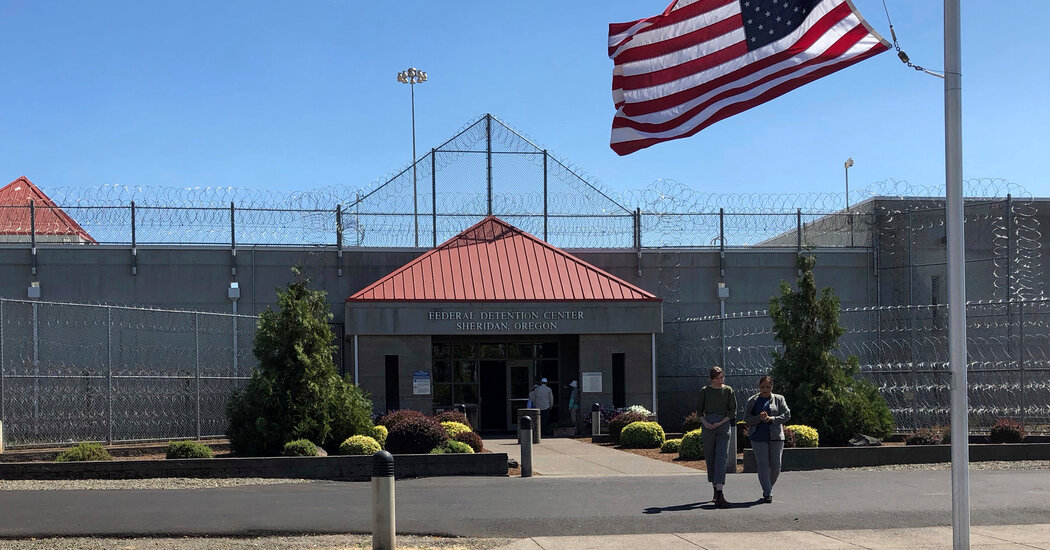
Delays for medical care were severe enough to force one inmate at the prison to fake a suicide attempt to obtain treatment for a serious infection.
An inmate at a federal prison in Oregon faked a suicide attempt to obtain medical treatment for a serious infection because health care staffing levels were so low that patients were forced to wait days, or even weeks, for basic care, an independent watchdog found.
The work force shortages at the prison, Federal Correctional Institution, Sheridan, reflect a broader staffing crisis at dozens of facilities run by the Bureau of Prisons, according to a report released Wednesday by Michael O. Horowitz, inspector general of the Justice Department. It has spurred long waiting lists for essential medical and dental services, mental health care and drug treatment at Sheridan, mirroring similar problems at federal facilities across the country.
The minimum- and medium-security prison, just outside the state capital Salem, is emblematic of the worsening conditions at the federal prisons bureau, which operates more than 120 facilities — many in need of serious repairs and struggling to fill hundreds of high-stress, relatively low-paying jobs.
“When we go in, we are getting staff telling us, in a very straightforward way, how concerned they are about what’s going on at their facilities,” Mr. Horowitz said in an interview. “We heard repeatedly from staff, including corrections officers, who were so exhausted and so understaffed they couldn’t do their jobs.”
A Bureau of Prisons spokeswoman did not immediately respond to a request for comment.
Investigators made two unannounced inspection visits to Sheridan in November and December 2023, when they found a widespread lack of services intended to address the fundamental needs of nearly 1,500 male prisoners in three different divisions. They also uncovered significant gaps in security caused by a concurrent shortage of corrections officers.
Most alarming was a growing backlog of diagnostic tests. Inspectors found that the institution had a backlog of 725 orders for blood draws and urine samples, along with 274 pending X-ray orders. The situation caused “medical conditions to go undiagnosed,” the report said, and an on-site physician acknowledged that the backlog prevented him from monitoring the liver and kidney function of patients who had two of the most common ailments found among incarcerated people, diabetes and hepatitis C.
This post was originally published on this site be sure to check out more of their content.








